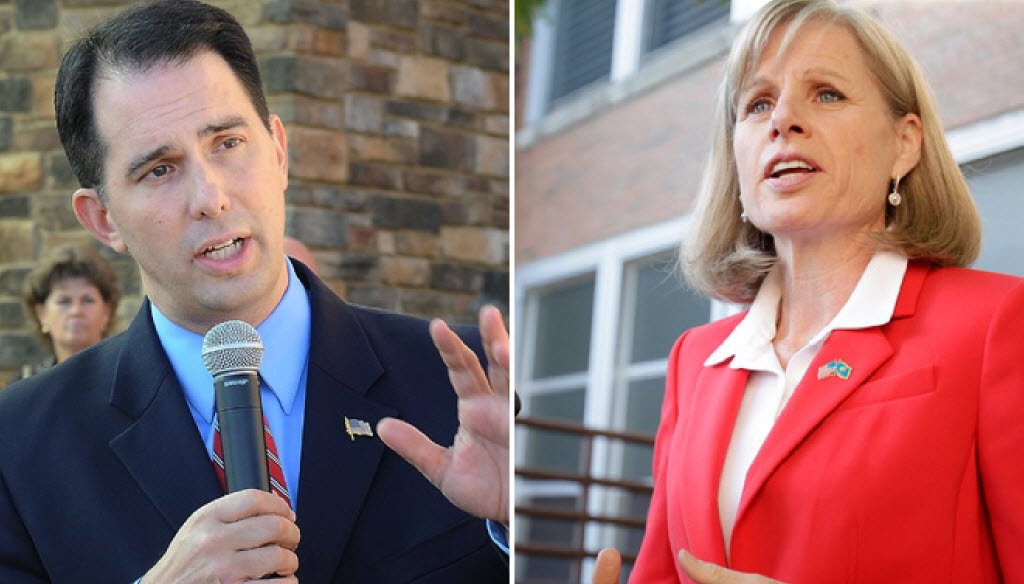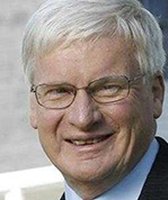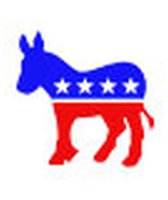Stand up for the facts!
Our only agenda is to publish the truth so you can be an informed participant in democracy.
We need your help.
I would like to contribute

Until November: Gov. Scott Walker and Democratic challenger Mary Burke
Tom the Taxer. Loophole Louie. Diamond Jim. Scooter. Old Woof Woof.
Tricky Dick. Slick Willie. Ozone Man.
The history of state and national politics teems with campaigns’ colorful and cutting attempts to breed distrust and even contempt for political rivals.
The Name Game is one way to do it.
For ages, partisans have dreamed of the perfect mocking moniker -- and sometimes lost sleep that their creations could boomerang and tarnish their candidate.
Now, as Wisconsin enters a busy 2014 election cycle featuring Gov. Scott Walker and Democrat Mary Burke, a new Name Game round is well underway.
Names matter, says Robert Hickey, author of "Honor & Respect: the Official Guide to Names, Titles, and Forms of Address."
"A person's name tells us much about them. Are they from a family with which I am familiar? Are they formal or informal: do they choose to present their name as ‘William’ or ‘Billy’? All sorts of stereotypes can come into play -- positive and negative -- when we hear a name."
Nicknames are much more personal than formal names, so "inventing a negative nickname in a political race is intended to insult as it would on the school yard," Hickey said.
Much of the game plays out now on Twitter, a petri dish for hashtag mashups. But in other formats such as news releases, blog posts and email blasts, partisans also are test-driving electronic epithets and caricatures, and not just in the governor’s race.
"Governor Ultrasound." "Millionaire Mary." "‘Struggling’ Sean Duffy."
Walker is familiar with it by now.
Back to his years running Milwaukee County, critics have dismissed him as "Scooter," suggesting he’s fighting way above his weight.
That seems positively quaint now -- especially after the rancor directed Walker’s way when he surprised Wisconsin with budget legislation that sharply limited collective bargaining. For some, the governor became "Koch-head Walker" after the governor was punked by a phone-caller posing as industrialist and conservative political funder David Koch.
As the lone challenger to Walker, Burke, the former Trek Bicycle executive and ex-state Commerce secretary, is getting a lot of early attention of the unflattering kind.
Keeping with tradition, Walker at this early stage tries to avoid naming Burke at all when discussing the campaign. Burke is new to campaigning and not widely known, so why boost her name recognition?
Similarly, in Burke’s early weeks on the trail she’s generally avoided mentioning or criticizing Walker by name.
But surrogates, including the political parties and allied groups, can show less restraint as they tie a candidate to a vote, action, event or trend.
Hence, "Millionaire Mary" and "Backward Burke."
Mark Graul, a Republican strategist, isn’t big on nicknames, but he thinks "Millionaire Mary" might be effective because it speaks to an overall GOP message that the wealthy Burke may be out of touch with average Wisconsinites.
Democrats are trying a similar strategy against a GOP Wisconsin congressman whom they’ve dubbed "Struggling" Sean Duffy, because he complained of financial struggles soon after taking office.
What’s behind #BackwardBurke? The label plays off of Walker’s "Moving Wisconsin Forward" campaign motto.
Another Name Game theme is to lump her with conservative punching bag Jim Doyle, the Democratic governor for whom she worked as Commerce Secretary (i.e. the "Doyle-Burke administration, as if Burke was the lieutenant governor.)
It was Doyle whom Republicans and conservative talk-radio hosts dubbed "Diamond Jim" when he signed perpetual casino deals with tribes after they made massive campaign donations to Democratic coffers to help him win in 2002.
As for Walker, the left labeled him "Governor Ultrasound" after he signed legislation requiring women seeking abortions to get ultrasounds.
That moniker was picked up widely on social media as part of a strategy to convince voters that Republicans are conducting a "war on women." Dems have applied the tag to other GOP governors as well.
During the collective-bargaining battle and recall elections, a Democratic lawmaker labeled the state "FitzWalkerstan," suggesting a Third World junta run by a small ruling group (Walker and legislative leaders Scott Fitzgerald and Jeff Fitzgerald, who are brothers).
Why focus on names
Hickey told us that Americans are much less likely that people in other nations to use honorifics, and frequently will use first names even for high officials.
"This ‘quick to first-name-only practice’ is a reflection of our predominantly egalitarian tradition which reflected our national value statement that "all men are created equal,’" he said.
Political underdogs will refer to a powerful incumbent’s first name to try to even up the scales of status between them, Hickey noted.
Yet, it was the Republican Governors Association -- in support of the front-runner Walker -- that used the tactic against Burke, referring to her simply as "Mary."
The RGA dropped Burke’s surname in a press release that discussed "Mary’s History of Outsourcing Wisconsin Jobs" and "Mary’s Family Business." In contrast, the association calls Walker "Governor Walker" even on second and third reference.
"It’s a derogatory or condescending reference used to diminish her authority," said Democrat Peg Lautenschlager, a former attorney general and U.S. attorney. "They think they are being coy and doing a subliminal message."
Graul, the Republican strategist, saw no significance to the reference.
Indeed, when Burke announced, Wisconsin Democratic Party Chair Mike Tate repeatedly called her "Mary" in a news release crowing about her ability to bring people together.
But Lautenschlager countered that tone matters when a first name is used.
Everyman and woman
In the 2012 U.S. Senate race in Wisconsin, Democrat Tammy Baldwin directly sought to defuse an advantage former Republican governor Tommy Thompson had entering the race.
Not only was Thompson better known, but he had honed an "everyman" image burnished by the "Tommy" brand name.
Baldwin’s campaign spotted Thompson the "Tommy," but turned the everyman image against him, saying Thompson cashed in on his Washington connections and was "not for you anymore." On election day in the battle of "Tammy vs. Tommy," she prevailed.
Earlier, in the Republican primary, Thompson was labeled "Tommy the Taxer" by a primary opponent despite a record of supporting state tax cuts.
The "taxer" charged echoed the Republican refrain against Milwaukee Mayor Tom Barrett as "Tom the Taxer" when the Democrat was running for governor against Walker in 2010 and in the 2012 recall election. Critics cited property tax increases under Barrett; the mayor said increases had been modest.
Sometimes the Name Game gets rough. And personal.
In the 2011 recall cycle, liberal bloggers called a Republican state senator from Fond du Lac Randy "Bed" Hopper after his estranged wife told reporters he had an affair.
Conservative radio talkers, meanwhile, attach a "Sticky Fingers" tag on Senate Democratic Party leader Chris Larson (D-Milwaukee) because he was caught shoplifting when he was 19.
Senator Lena Taylor, another Milwaukee Democrat, compared Walker to Hitler during the union protests.
And the liberal group One Wisconsin Now publicly refers to a Republican state representative from Hartford as Don "White" Pridemore, alleging his Arizona-style immigration bill is racist.
Loophole Louie
Such attacks "can work if they’re clever and capture something that’s accurate," said John G. Geer, a Vanderbilt political science professor who’s written extensively on negative campaigning.
A negative ad claiming President Barack Obama is not intelligent would fall flat, Geer said. But an ad calling Obama aloof, well, that might resonate.
One Name Game attack cited as influential by Wisconsin political observers involved Supreme Court Justice Louis Butler Jr., who lost his seat to Michael Gableman in 2008. A widely aired Gableman TV ad played off of Butler’s "Loophole Louie" nickname. The ad falsely implied that Butler, as a public defender, had freed a rapist by finding a loophole, allowing the rapist to commit another sexual assault, Factcheck.org found.
The "loophole" charge likely resonated more because It wasn’t just made up for the campaign: Butler’s nickname dated to his days as an attorney filing appeals motions.
Nationally, Geer recalled for us that President George H.W. Bush mocked Democrat Al Gore as "Ozone Man" during the 1992 Clinton-Gore campaign. We didn’t remember that one, but the record is clear.
"Tricky Dick," of course, was the left’s pet name for President Richard Nixon.
"Old Woof Woof"? That was Wisconsin Gov. Walter Goodland (1943-47). "I think "Woof Woof" referred to Goodland's demeanor: an old dog who was never afraid to bark," Milwaukee historian and author John Gurda told us.
Perhaps one of the best known of political nicknames, "Slick Willie," was attached to Bill Clinton when he was Arkansas governor.
But for every one that sticks for good, there’s another that slides off.
Environmentalists, for example, tagged Thompson as "Toxic Tommy" early in his governorship, but the sobriquet faded.
Even earlier, when he was minority leader in the Legislature in the 1970s, Dems dubbed him "Dr. No" for blocking legislation.
Pretty tame by today’s standards.
Our Sources
Interview with John Geer, chairman and professor, Political Science department, Vanderbilt University, Nov. 12, 2013
Interview with Peg Lautenschlager, attorney, Madison, Nov. 11, 2013
Interview with Mark Graul, founder, Arena Strategy Group, Nov. 11, 2013
Interview with Robert Hickey, deputy director, The Protocol School of Washington, Nov. 11, 2013
Interview with John Gurda, Milwaukee historian and author, Nov. 18, 2013
Journal Sentinel archives















































